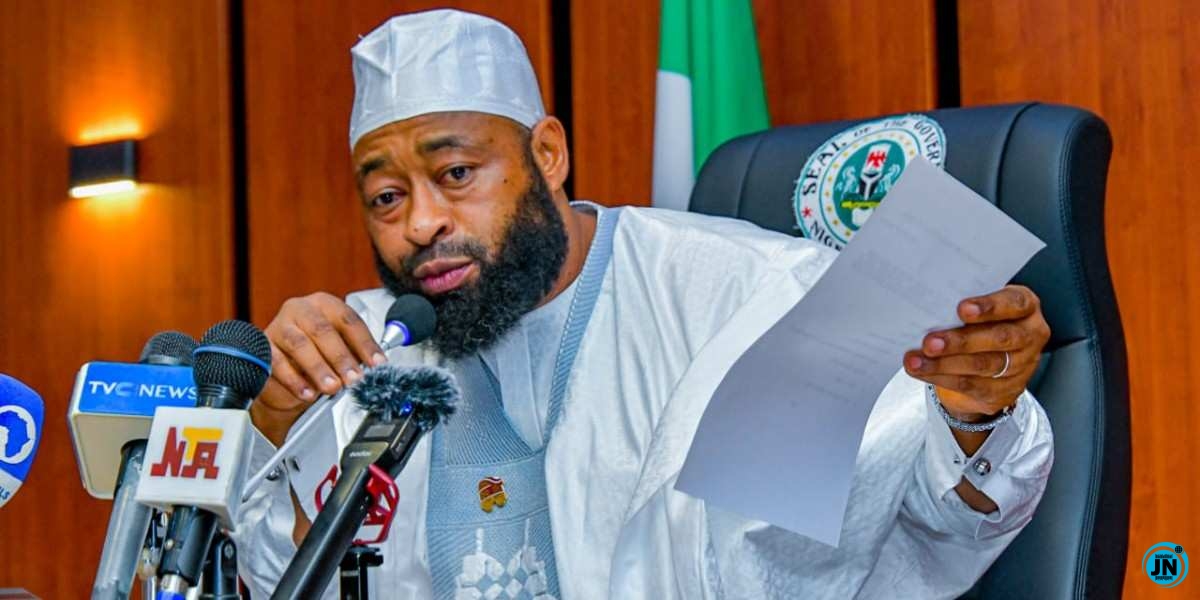
Niger State Governor, Umar Bago has recently made a controversial announcement, stating that all religious preachers and clerics within the state must submit their sermons for prior review and obtain official approval before addressing their congregations. This directive applies to all religious gatherings, including Friday sermons, church services, and any public preaching activities taking place in the state.
The governor made the statement while appearing on TVC’s Politics on Sunday. He clarified that the policy should not be seen as a ban on evangelism or religious teaching but is intended as a precautionary measure to ensure that sermons do not incite hatred, spread divisive messages, or pose threats to public order and safety. Bago emphasized that the policy aligns with global practices, citing similar regulations in countries such as Saudi Arabia.
Governor Elaborates on Policy Motivation
Governor Bago explained that the move is aimed at curbing the dissemination of messages considered harmful to society or hostile to government policies. He stressed the importance of balancing freedom of worship with societal stability. “I didn’t ban evangelism. For everyone going to sermon on Friday, he should bring his scriptures for review, and it’s normal. Even in Saudi Arabia, this is done. We cannot say because you are a cleric, you will go out and preach the gospel that is anti-people, anti-government and think it’s normal,” Bago stated during the program.
The governor linked the policy to broader security concerns in the state, highlighting the involvement of various security agencies including the Department of State Services (DSS), the Nigeria Police Force, the Nigeria Security and Civil Defence Corps (NSCDC), and the military in monitoring and supporting the enforcement of the directive. “It’s in that direction. We want to be able to see what they are preaching, hear what they are saying. We are working together with security agencies,” he added.
Licensing System and Administrative Procedure
The directive coincides with a recent statement from the state’s Director General of Religious Affairs, Umar Farooq, who announced that any individual intending to preach in Niger State must obtain an official licence within a two-month period. Applicants are required to fill out official forms and appear before a screening panel that will assess their suitability to preach before granting approval.
Farooq stated, “It is true, the State Government has banned preaching without prior approval. Any preacher who wants to preach must secure a licence between now and the next two months. All they need to do is to visit our office, get and fill out the form. After which, they will have to face a panel that will screen them before they can start preaching.” This administrative process, according to Farooq, is designed to ensure accountability and prevent sermons from including content that could lead to unrest or security risks.
Reactions from Religious Leaders
The new policy has generated a wide range of reactions among religious leaders and community members. Some have expressed concerns about government interference in religious practices, while others have acknowledged the need for oversight to maintain security and public order.
Bashir Yankuzo, Chief Imam of the Federal University of Technology in Minna, stated that preaching is a divine duty and should not be dictated by government authorities. “My opinion is that preaching is a command. The government is not paying anyone for doing the job; people are preaching in order to earn the pleasure of God. So, the government cannot dictate who to preach to and who not to preach,” Yankuzo said. However, he also noted that government oversight could be justified in cases where clerics use abusive language, incite violence, or pose security threats: “But at the same time, if there are people who are going out of their way to cause security threats, using abusive words and so on, then government can have control over that in order to maintain peace and security.”
Similarly, Raphael Opawoye, secretary of the Christian Association of Nigeria (CAN) in Niger State, revealed that the Christian body had not yet been officially informed about the directive. “The Christian Association of Nigeria is not aware of the ban. We shall come up with a statement when we are officially informed,” he stated. This indicates that there may still be ongoing consultations between the government and religious organizations to clarify the scope and implementation of the policy.
The announcement and its subsequent reactions have sparked debates on social media and in religious communities, raising questions about the balance between religious freedom and government oversight in matters affecting public safety and social harmony. While some see the policy as a necessary security precaution, others view it as an overreach that could undermine religious autonomy and the freedom to practice faith without interference.